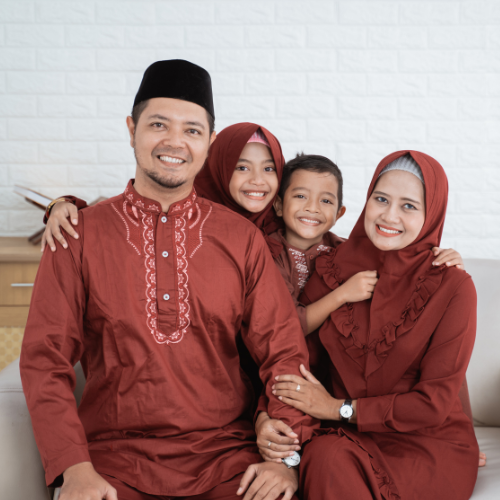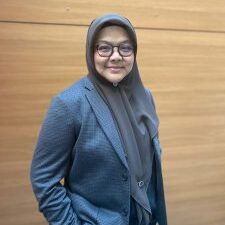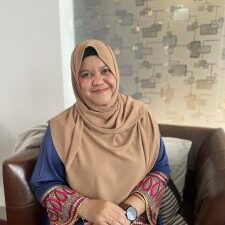Professional Certificate in Systemic Practice
Objectives
This 12-session practice-based training programme hopes to offer a platform for practitioners to begin the deliberation for them to outline the pattern that nurtures the competencies of a culturally appropriate systemic practitioner capable of offering culturally and religiously appropriate inclusive response. Trainers will pay acute attention to their experiences of working with minority communities in Singapore. The course will encourage participants to interact and intra-act with their own cultures, and that of others.
At the end of the course, participants will be able to:
- Describe systemic ideas and concepts;
- Develop a systemic relationship with culture;
- Identify cultural and intergenerational biases in practice;
- Encourage a critical approach in applying culture of humility and empathy in working with families;
- Cultivate and co-construct culturally appropriate responses in their practice contexts.
Who Should Attend
This certificate is targeted at:
- Social workers counsellors and social service practitioners (including Programme Managers/Executives) working with individuals, couples, families and the community;
- Healthcare Professionals with an interest in cross-discipline and cross-cultural learning
![]() Delivery Mode
Delivery Mode
Face-to-Face and Online Sessions and Preparation Work
![]() Funding Type
Funding Type
SSG Funding
![]() Course Brochure
Course Brochure
Click here to view or download the brochure
![]() Enquiries
Enquiries
Email to swkcpepc@nus.edu.sg
Certificate Outline

Systemic Ideas and Concepts
[21 November 2024; face-to-face session]
- Introduction to Systemic Practice
- Unpacking Multi-culturalism & Cross Cultural Practice in the 21st Century

Broadening Culture in Systemic Practice
[22 November 2024; face-to-face session]
- Theories About Culture
- Intersectionality & Intra-Acting Culture

Developing Cross-Cultural Responsive Systemic Practice
[25 November 2024; face-to-face session]
- Identity, Race & Ethnicity
- Gender, Religion & Spirituality

Systemic Interaction with Differences (synchronous e-learning)
[9 & 10 January 2025; online sessions across 2 half-days]
- Asian Culture & Food
- Embracing Difference: Conversation with Fergus Hogan

Practice Talk: Working with Families Across Cultures (synchronous e-learning)
[16 & 17 January 2025; online sessions across 2 half-days]
- Working with Families Across Cultures (Part 1)
- Working with Families Across Cultures (Part 2)

Practice Talk: Global Issues and Concerns
[23 & 24 January 2025; face-to-face sessions across 2 half-days]
- How Global Issues Affect People of Culture
- People-Need-People Conversation
Important Information
- Participants have to complete all courses to qualify for the Professional Certificate.
- For further enquiries, please email to swkcpepc@nus.edu.sg.
Fees
| Fees Description | Total Nett Programme Fee (Before GST) | Total Payable (Inc GST) for Professional Certificate |
| Full certificate fees | $5,700.00 | $6,213.00 |
| Pricing after SSG Funding* (Singapore Citizen below 40 years / Singapore Permanent Resident) | $1,710.00 | $1,863.90 |
| Pricing after SSG Funding* (Singapore Citizen aged 40 years and above) | $664.13 | $723.90 |
Note: Fees will be updated when registration is open.
About the Instructors

Ms Maimunah Mosli
Director of Hayaa’ Network

Ms Fajariah Saban
Deputy Director of Hayaa’ Network
Ms Maimunah Mosli is the Director of Hayaa’ Network. Prior to setting up this private practice, Maimunah served a Muslim women’s organisation for the last 20 years. She obtained her Bachelor’s Degree in Social Work with Honours from Curtin University, Perth Western Australia in 2003. While pursuing her degree, she worked with the Muslim Women Support Centre of Western Australia where the bulk of her work includes helping Muslim immigrants who sought refuge by coming to Australia. She is currently pursuing her Doctorate in Systemic Practice.
A highly reflexive therapist and clinical supervisor, Maimunah is determined about nurturing and supervising practitioners using systems ideas. Her years of experience, particularly her interest in cross cultural practices, have made her opinions matter in the field of family therapy. Aligned with her expertise, Maimunah is a member of the Social Service SkillsFuture Tripartite Taskforce, where she contributes towards the deliberation of capacity-building initiatives of social service practitioners.
Today, she sits on the International Bateson Institute based in Sweden as an Advisory Board Member. She has sat in the Ministry of Social and Family Development’s Review Board for two consecutive terms since 2018 and was also part of the SGTeguh Bersatu Task Force, contributing to the community engagement efforts during the Covid-19 pandemic. She is a member of the Institute of Muslim Mental Health and Family Therapy (IMHAFT), a newly set-up establishment that pays attention to the development of Muslim mental health and family therapy practice globally.
Ms Fajariah worked with a Muslim women’s organisation for the past 19 years. She has vast experience in social work and direct clinical practice, programme planning and development, management and supervision, as well as research work. As the Deputy Director, Fajariah brings with her years of expertise that help shape the way she interacts and negotiates with the system. She holds a Bachelor of Arts from the National University of Singapore, majoring in Social Work and Malay Studies, and a Master of Science in Family and Systemic Psychotherapy awarded by Counselling and Care Centre (Singapore), in collaboration with Institute of Family Therapy (London) and Middlesex University, United Kingdom. Fajariah also obtained her Diploma in Clinical Supervision from Counselling and Care Centre in 2015.
As a practitioner, Ms Fajariah plays an instrumental role in conceptualising and designing training curriculum for practitioners. She possesses excellent proposal-writing skills, including securing and management of funds. This combination of management and practice skills makes Fajariah a highly perceptive, yet grounded practitioner.
Fajariah has a keen interest in systemic family therapy practice. Her professional experiences also include community engagement work – Fajariah was a member of the SGTeguh Bersatu Workgroup and contributed to the development of a multidisciplinary team approach to address the community’s concerns and needs. She is also member of the Institute of Muslim Mental Health and Family Therapy (IMHAFT).

